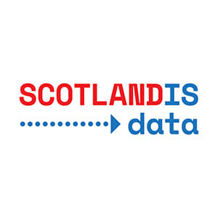Read this month’s blog from the Head of the Data Cluster, David Ferguson.
On the 1st of July I had the pleasure of attending the DDE Venture Builder Incubator Demo hosted by Edinburgh Innovation at the University of Edinburgh. The event celebrated and profiled new ventures with short presentation pitches made by each providing a fantastic opportunity for this group of entrepreneurs to not only hone their pitch and presentation skills but also profile their new ventures. Covering topics ranging across recycling, digital healthcare and patient monitoring, supply chain optimisation, building design, teacher engagement, data application enhancement and cattle pregnancy testing, it was apparent that all brought significant opportunities for delivery of social and economic benefit through the application of data.
As a snapshot of activities taking place across the data sector, driven by the rapid integration of AI applications, it is apparent that the success and level of value creation is not solely dependent upon the specific algorithms and analytics being developed.
The existence of an established and robust ecosystem plays a significant role in the commercialisation of an application. Critical factors include data availability, reliable communications, and the integration of complimentary technologies. The adoption and rollout of the 5G network provides a communications network with sufficient capability to handle the necessary data transfer requirements. Integration with external sensing technology and IoT devices aids in the creation of appropriate datasets to optimise application performance. Access to relevant datasets will significantly improve application performance but the storage and integrity of the data will be critical to the accuracy and efficiency of any analytics.
With the increasingly diversified nature of new application development, having access to historical datasets will be needed not just to benchmark against current sets but also to develop new applications. It is therefore important that current data sets are retained and maintained with a view to possible contribution into future applications not yet defined.
The potential cross application of datasets and the creation of additional datasets from non-essential data introduces a challenge around the potential valuation of a dataset and how this should be recorded. Understanding the cross-application opportunities may add to the value of existing sets or create value as a by-product of current activity. As the levels of data captured increase, having a broader view of the data sector may help to identify and open opportunities for supply and engagement with innovation organisations.

